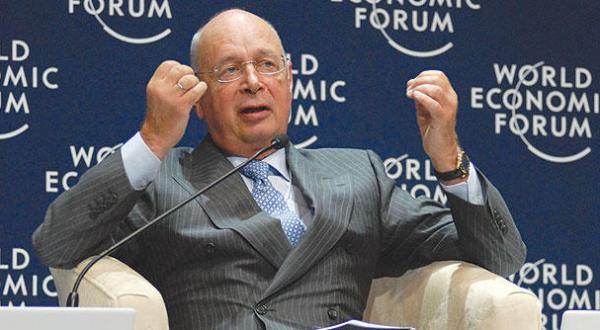Dubai- Executive Chairman of the World Economic Forum, Klaus Schwab, said that what is being called the 4th Industrial Revolution is a two-edged sword that brings upon both opportunity and risk. The 4th Industrial Revolution is said to enable community potential, yet also bares some grave risks.
Professor Schwab clarified that modern technology, artificial intelligence, self-driving cars, biotechnology and block chain, will usher in mass changes unlike other revolutions.
Schawb, in declarations made to Asharq Al-Awsat on the sidelines of the World Government Summit 2016 in Dubai, added that despite the possible benefits of the 4th Industrial Revolution, especially the environmental ones, concerns are present on the increasing inequality, war influence, and communities interacting with one another.
Governments will firsthand witness the effects and challenges of this Revolution, the technology will yield in changes in the power balance between industrial sectors, governmental bodies, non-governmental bodies and countries. The technology will provide new ways to communicate with citizens, in addition to the fact that subjects like robots, artificial intelligence, and genetic engineering will establish new moral and structural obstacles.
It is important for ruling authorities to recognize all variations occurring and prepare for collaboration with all sectors to ensure the realization of all provided opportunities by the Industrial revolution at minimum risk.
Moreover, Schawb added that it is impossible to know exactly where the 4th Revolution will lead, yet we can read into three reasons for concern. Firs is inequality; Oxfam had presented a report at the Davos World Economic Forum showing 62 people share assets equal to the property of half of the world’s poverty-struck population combined. In other words, the estimated wealth of 62 people is worth the assets of 3.6 billion underprivileged people.
Despite the fact that consumers, producers and investors will benefit from the new technology, the gap of inequality will further deepen. Inequality is a result of the dynamics of digital platforms, increased unemployment rates, and the inclination to reward the highly skilled and lucky ones.
On that view, Schawb expressed that it is the responsibility of governments and those concerned to stop inequality from escalating.
The second reason for concern is security. Newly-discovered technology will increase the methods used by governments and other bodies for the reasons of waging wars. Efforts must be directed towards the establishment of global standards that limit the risks of using modern technology to threaten human security.
The third cause of concern is that the effect of the 4th Revolution will be taking on individual identity, community, and the capability of peaceful coexistence. The progress genetic engineering is witnessing indicates that the radical developments on human potential will not be made available except for those who can afford it, which also will add to inequality.
Technology, its development, and its collateral damage must not be viewed as an external force that cannot be controlled. We are all responsible of the direction technology choses to take. Through daily decisions, as citizens, consumers, and investors we can take advantage of this opportunity and the power this 4th industrial revolution provides us, to direct it towards a future that reflects our goals and shared values, Schawb added.
The World Government Summit has brought together over 3 thousand personalities from 125 countries. The summit seeks to explore more than 70 topical issues through the participation of world leaders, ministers, decision makers, CEOs, innovators, officials, experts, entrepreneurs, academics and university students. A number of initiatives, reports and studies will also be launched during the three-day summit and throughout the year. World Government Summit is set to end on February 10, in Dubai.

